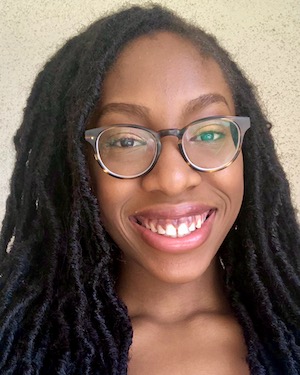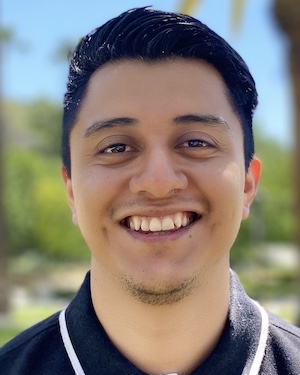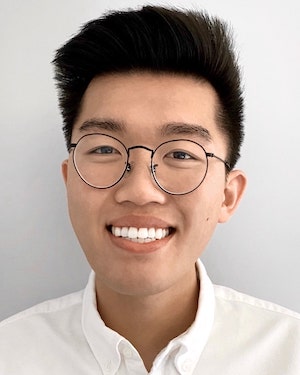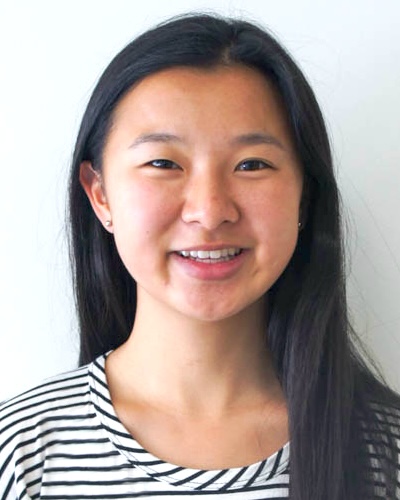Student Blog

Let’s Talk About Mental Health! ⟩
July 16, 2020, by Nmachi
As you may or may not know, July is BIPOC Mental Health Month! This month is dedicated to recognizing the specific struggles that Black, Indigenous, and People of Color face regarding mental health.
Personally, BIPOC mental health means taking the time to recognize that prioritizing my mental health is just as (or even more so) important as all the other goals in my life. Growing up in an immigrant household, I was told from a young age that I was to do my best in school and be the best person I could be so that I could make my family proud. Even though this notion is very much still important to me, I had to learn on my own that mental health is just as important as physical health and should be placed at a higher value in my life. Throughout my middle school and high school years, I was faced with the dilemma of consistently getting straight A’s in my classes or putting my mental health first. I know that a lot of people in my community, especially those from immigrant households, are faced with this issue constantly. The biggest thing I’ve learned overtime is that in order to succeed in all areas of my life, it is crucial that I spend time with myself and learn about things I need to do daily to relieve unnecessary stress and anxiety.
Another key reason why July is recognized as BIPOC Mental Health Month is because of the unique type of trauma that the people of this community may face: racial trauma. Racial trauma, or race-based traumatic stress, refers to how racial biases and discrimination can affect mental health. I would highly suggest reading more about this here.
With all of this being said, there are many things that I do to cope with feelings of self-doubt and unhealthy perfectionism. Here are a few occupations that help me alleviate stressors in my daily life:
Consuming music regularly
Music is a form of therapy in my life. Whenever I feel overwhelmed for whatever reason (academic/personal stress) I continue to turn toward all forms of enjoying the beauty of music. Playing acoustic guitar, singing, and dancing to music are ways that I deal with my positive and negative emotions that naturally come and go.
Speaking with people I trust about my struggles
I find that expressing what I’m feeling and discovering the reasons why I am feeling that way is crucial when attempting to resolve inner conflicts. Thankfully, I was able to find those people who I can confide in and who will keep me accountable at USC. Having a strong support system outside of my family was very important to me. I am forever grateful to those friends, who I now call family, that continue to be there for me and understand my unique struggles as a young Black woman.
Daily affirmations
I started to incorporate affirmations into my daily routine fairly recently. As I began to make reading affirmations a habit, I noticed a difference in the way I view myself as an individual. When I would consistently tell myself that I am worthy of love and happiness, it allowed me to not let the negative thoughts and comments of others truly affect me. Don’t get me wrong, not giving in to others’ predisposed thoughts about me as a Black woman is a daily battle. It is very difficult to maintain confidence in who you are as a person when society and peers overlook you and your community all the time! Despite this, I know now that I don’t need to feel like I have to prove myself to everyone. I don’t need to be perfect. I am perfectly fine right now, just as I am.
⋯

Communication is Key!!! Especially in Telehealth! ⟩
July 15, 2020, by Daniel
Good communication is an important skill that all occupational therapists need to develop and continue to improve as they continue to practice. As a student completing my final level-2 fieldwork at LAC+USC Adult West Primary Care Clinic, I’ve had the opportunity to practice my communication skills every day. Especially now that most settings are providing telehealth, communication is vital to making things work! The most difficult part about working remotely and communicating is that you may have never actually met the person you are talking to. My time at fieldwork this summer has consisted of communicating with patients over the phone, and communicating with the primary care team via phone, email, video camera, and messages.
Communicating with patients:
One of the hardest things I’ve had to do as an occupational therapy (OT) student is facilitate a one on one, 1-hour appointment over the phone with someone I have never met before. Whether it’s an initial evaluation, progress phone visit, or discharge, asking someone to answer all your questions and trust you over the phone is a lot to ask! Furthermore, if patients have had previous negative experiences in the healthcare system, they may be reluctant to opening up to you. Neither of you are able to see each other’s body language or pick up on cues that people rely on when having a conversation. The way you frame questions, your tone of voice, and your ability to listen will be key to communicate effectively! When I think back to all of the courses I have taken at USC, I have to say that OT 578 Therapeutic Communication: Facilitating Change in Clients (Motivational Interviewing) with Dr. Diaz is one of the most valuable courses I have taken in my entire college career. This class taught me the importance of simply listening to someone and showing them that you care by using reflections, affirmations, summaries, etc. in order to build that trusting relationship with your patient. This may be the first time a healthcare provider is actually taking the time to listen to them and agreeing with a lot of the frustrations they may be expressing. Additionally, the structure in the primary care clinic allows OT to spend up to an hour talking about making lifestyle changes with a patient. This client-centered approach of focusing on the patient’s needs and wants is the unique value of OT. The reality is that motivational interviewing may not work for every single one of your patients, but it is an evidence-based approach that I have personally found valuable during my time in primary care.
Communicating with your team:
Again, communication, communication! At the clinic our interdisciplinary team consists of primary care providers (medical doctors, physician assistants, nurse practitioners), clinical pharmacists, certified medical assistants (CMAs) community health workers (CHWs), care managers, nurses, medical case workers (MCWs), 1 occupational therapist, and 1 occupational therapy student (me). Working within an interdisciplinary team can be challenging at first. My first couple of weeks in fieldwork I spent learning how to use the communication systems used by LAC+USC County, which was frustrating at times with IT or technology issues. In the beginning, every electronic medical record (EMR) message or email I would send to a patient’s primary care provider (PCP) would make me nervous because I would be talking to doctors or specialists that have been practicing for a long time. Furthermore, I am communicating sensitive information that can affect the patient if it’s not communicated properly. Once I became more comfortable and got over my fear of “messing up”, I was able to better understand the value of OT and how to effectively communicate patient concerns with the interdisciplinary team. For example, while working with patients diagnosed with uncontrolled diabetes and/or uncontrolled hypertension, we may communicate patient concerns such as hypoglycemia episodes (really low blood sugar levels), not taking medications, reported pain that is limiting their function, and needed support for food and/or housing insecurity as well as financial support. This communication allows us to catch things that the patient may not have reported during their appointments with other providers and help the team provide the best possible care to the patient.
You will make mistakes and that is totally okay! As a student, this is the time to learn from your mistakes and develop those skills that will help you become an amazing OT in the future! As students we are often too hard on ourselves and are afraid to mess up, but remember to take a step back and remind yourself that you are still learning! As long as you are following safety precautions and working with your team to improve your skills, you will become more comfortable communicating with your patients and your team. As many of you begin to go back to fieldwork in the Fall and then begin level-2 fieldwork next year, you will have the support you need from the fieldwork educators, your clinical instructor (CI), and the rest of the team (wherever your setting is) you are working with! I have been fortunate to have such a supportive team at the Adult West primary care clinic with helping me transition into working remotely and providing feedback to develop the necessary skills to work in this setting. I hope this provides some insight into the importance of communication in the world of telehealth! This is a skill that you will be able to develop during the Master’s program and further enhance if you choose to pursue the OTD as you will have additional mentorship from faculty! I hope that no matter what route you choose, that you feel competent when applying to jobs in the future that require great communication skills and telehealth experience.
⋯

Calvin’s Declassified Chan Division Survival Guide ⟩
July 10, 2020, by Calvin
As much as I’ve been enjoying my time spent in grad school so far, I confess that there have been, and definitely still are, moments when I struggle to keep up. Back when I had just started the program, I felt a daunting amount of pressure to be that student who had good grades, who was getting involved, and so on. I didn’t want my peers to think that I was falling behind or that I wasn’t as passionate as them. I had put up a front as if everything in my life was balancing out perfectly. In reality, though, all of my self-doubt and imposter feelings had knocked me down to a low point where I felt undeserving of being here.
I needed to pause and reflect in order to understand why I was experiencing these feelings. As I collected my thoughts, I realized that my reasons weren’t aligned with my values. I associated an “A” grade with the incentive of validation and I connected heavy involvement as the only method of gaining opportunities. However, the truth of the matter is that I don’t need to be reaffirmed by letter grades to know that I’ve worked hard, and there are multiple avenues to finding opportunities and getting involved. We’re all here to become occupational scientists and occupational therapists! How we get there is up to us, so let’s live our lives to our fullest!
I wish I had guidance on this earlier on, so I want to provide some tips and reminders that I think will help with treading the waters of graduate school:
Your health comes first:
- Being a student means keeping ourselves academically accountable, but we should also be prioritizing our wellness. I’ve found that setting boundaries and understanding my own mental and physical capacities have enabled me to excel in so many ways!
Get involved for you:
- Last week, I co-presented at the Student Organization Fair on behalf of the Occupational Therapy and Science Council (OTSC). During the Q&A portion, first-year students expressed their concerns about getting involved in terms of time management, overcommitment, and staying on top of school. In response, we second-year students, along with Dr. Rafeedie, echoed sentiments of doing what you can and how your experiences are what you make of it. However you choose to get involved will ultimately help you and respective organizations move forward in leadership!
It’s okay to say “no”:
- You may feel like turning down opportunities will hurt your chances of getting more in the future, but really, sometimes we just have to say “no”. There are moments when I feel so overwhelmed and unsure about taking on more responsibilities, that saying “yes” may only exacerbate the outcome. By giving myself options, I’ve become a more effective communicator and a better manager of my time.
Reach out and check in:
- Now more than ever, getting in touch with peers, faculty, and staff, has proven to be an essential aspect of my life. Feeling sensitive, vulnerable, and in need of support, is natural. When I allow myself to open up, I feel a sense of relief and find that others may even connect with my feelings on a mutual level.
You don’t have to have all the answers:
- As a second-year student, I’ve been feeling the pressure of having to provide the best responses to questions that come my way. Realistically though, I don’t know everything, and that’s okay. There is beauty in not knowing and even more so in the adventure of learning and being curious!
Embrace your qualities:
- I am a huge overthinker! I had always seen this as a weakness, but more recently, I’ve redefined it into a quality that I cherish. Now, I see it more like thinking thoughtfully and putting in the effort to understand. We all have our own unique set of qualities, so let’s appreciate and celebrate them!
Be real with yourself:
- I used to be such a people pleaser, but I realized that I can’t give everyone what they want. It’s still hard, but being more realistic with myself has helped me cope with my struggles and it’s reminded me that I should be doing things for me. Stay true to yourself because you are the only you and no one else knows you better than you do!
This journey of self-discovery is never-ending. I’m growing and learning more about myself every day and, although graduate school can get tough at times, it has taught me valuable lessons that I will carry on throughout life. So, to all of you prospective students, current students, and anyone else: we are in this together and you are not alone!
⋯

Why I Decided to Run a Half Marathon ⟩
July 9, 2020, by Savi
Life Hacks School/Life Balance
Making time for something other than work during graduate school can seem like a daunting task. Your days are filled with classes, exams, projects, essays, and more. I quickly found myself stuck in an unhealthy routine of going to class all day, driving directly to work, eating late at night, and staying up late to finish assignments and readings. After transitioning to studying and working from home, I found myself not only justifying my lack of self-care engagement to myself but also my extremely caring and somewhat concerned roommates. Although I had gained more time because I no longer had to commute, I continued to convince myself that wasting time on non-school or work-related endeavors was lazy and not worthwhile. After a few weeks of using this mentality, I gradually noticed my productivity declining and my energy depleting. As occupational therapists, we are supposed to help our clients engage in adequate self-care in order to live a more balanced, healthy, and productive lifestyle. I, therefore, knew deep down that it was time to make a change! I needed to enjoy my daily occupations and find ways to feel accomplished and energized once again, so I decided to train for a half marathon.
This was a practical decision for me, but it was not an easy one. To say it bluntly, I do not like running. I know what you might be wondering . . . why would you voluntarily decide to run a half marathon then Savi? Great question! I needed to change my tiring routine and add in an occupation that would increase my energy and productivity. As Dr. Laura Cox and Dr. Kelcie Kadowaki taught me in our OT 534: Health Promotion and Wellness course this semester, physical activity can promote psychological wellbeing, elevate cognitive functioning, and enhance self-esteem. In hopes of improving my overall wellbeing, I decided to listen to my professors’ advice and embark on a journey that I wasn’t initially enthusiastic about.
I created a strict training schedule and I sought out the advice of my friends who had already run a few half marathons. If I’m being completely honest, the first four runs were tough. I was out of shape and I was still in the mindset that training was taking time away from my studying. By the end of the second week, I had become so used to integrating the runs into my schedule that I would immediately stand up after class to go put on my running gear. My runs became easier and they allowed me more time to step away from my computer, breathe some fresh air, and listen to good music. Every time I came back home I felt as though I had more energy to engage in schoolwork and even socialize with my roommates during dinner. Checking the run off of my to-do list gave me a sense of accomplishment and increased my motivation to tackle the next item on my list. I found myself counting down the minutes before I could go on my run in order to increase my self-esteem and drive.
Many of you reading this currently work or want to work in the healthcare field and are, therefore, laughing at this epiphany of mine. You may be saying to yourself . . . well of course you are feeling this way! Exercise has proven to have many physiological and psychological health benefits. My response is that you are right! Although I knew the benefits all along, I had trouble finding a way to integrate it into my hectic lifestyle. I soon came to realize, though, that by adding this time for self-care, I was even more productive than before. I felt more confident in my ability to succeed academically, and I was more excited to engage in all my other occupations. So to those who need to hear it: Self-care is important and should not be left out of your schedule due to time constraints. The time you spend working on yourself allows you to tackle any obstacle in your way with more confidence and enthusiasm, so find the occupation that reminds you how strong, hard-working, and successful you truly are. Take the leap and “run that half-marathon” because I promise that you won’t regret it. I’ll meet you at the finish line!
⋯

Try Everything: Selecting Electives ⟩
July 8, 2020, by Bethany
Due to the pandemic and recommendations for social distancing, our summer classes have put us ahead of schedule in terms of coursework. So when I went to go check my email the other day, I found a message about picking electives for the Fall semester. I was both overwhelmed and nervous, but thankfully, the email also mentioned a Zoom information meeting to help us learn more about our options and what Fall is going to look like.
The electives have been something I have been looking forward to in this program for a long time. A lot of the Master’s coursework follows different practice immersions and thread courses throughout a specific course sequence designed to let us get a taste of OT in all of its forms. After those first semesters, we get to choose from a variety of electives for us to consider, either to specialize or to broaden our scope of knowledge further.
I had come into this program very interested in hand therapy, since it was one of my first experiences with OT. I also had the chance to volunteer under the same hand therapist later during my undergraduate career. For next semester, there were two courses related to hand therapy, OT 573: Hand Rehabilitation and OT 562: Advance Practice in Hand Therapy and Physical Agent Modalities. Hand therapy had always been a consideration, but now, after going through two of the Division’s immersions, I am considering other possibilities as well.
I was excited to be in Adult Physical Rehabilitation as my first immersion. I wanted to see more hand therapy, but then even just starting the immersion, I was able to experience the ways in which Rehab applies to so much more: transfers after hip replacements, creating memory devices, or even relearning the use of a limb after a stroke. At my fieldwork site, I was lucky to be able to experience interdisciplinary work, looking at how occupational therapists work with experts in other fields. In observing an interdisciplinary group for a wheelchair consultation, I began to understand the unique perspective that OT has to offer to complement the views of a physician, a physical therapist, and nurse.
I had been wary of the Mental Health immersion. Being a type A person, I had expected to be most drawn to the Adult Physical Rehab process of having certain activities tied to certain physical outcomes. I was at first almost scared by the seeming vastness and uncertainty of Mental Health. Instead, I found myself intrigued by the power of conversation and by the power of activity. I ran groups at my fieldwork site, engaging people not just through words but also in actions, through activities like a music group, origami, and activities engaging the senses. I fell in love with occupational therapy all over again, amazed by the power of doing, how activity does not just impact the physical, but mental aspects as well. I had expected the immersions to help me narrow down which field I wanted to be in; however, I feel like my choices are only expanding.
And now, I am very much looking forward to the Pediatrics immersion. I expect myself to come into the immersion with a more open mind. Though, I am worried that I will come away from the immersion with my mind open to even more possibilities than I am already considering.
The electives open to us for the Fall were numerous and varied, covering topics from Lifestyle Redesign to ergonomics to dysphagia and swallowing. I realized that I do not have to take courses only focusing on hand therapy if I do not want to. I’ve decided this Fall that instead of taking two hand courses, I will instead take a few others to diversify my course load. In addition to OT 573, I have requested clearance for OT 563: Occupational Therapy in Primary Healthcare Environments and OT 566: Healthcare Communication with Spanish-Speaking Clients. I’m excited to see how these different courses will prepare me to be a better clinician in the future!
⋯





